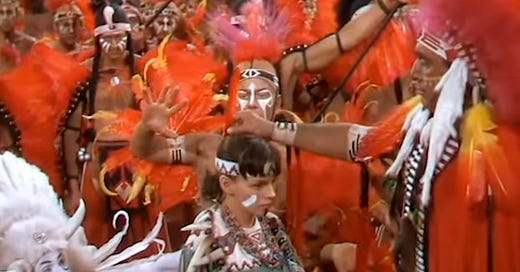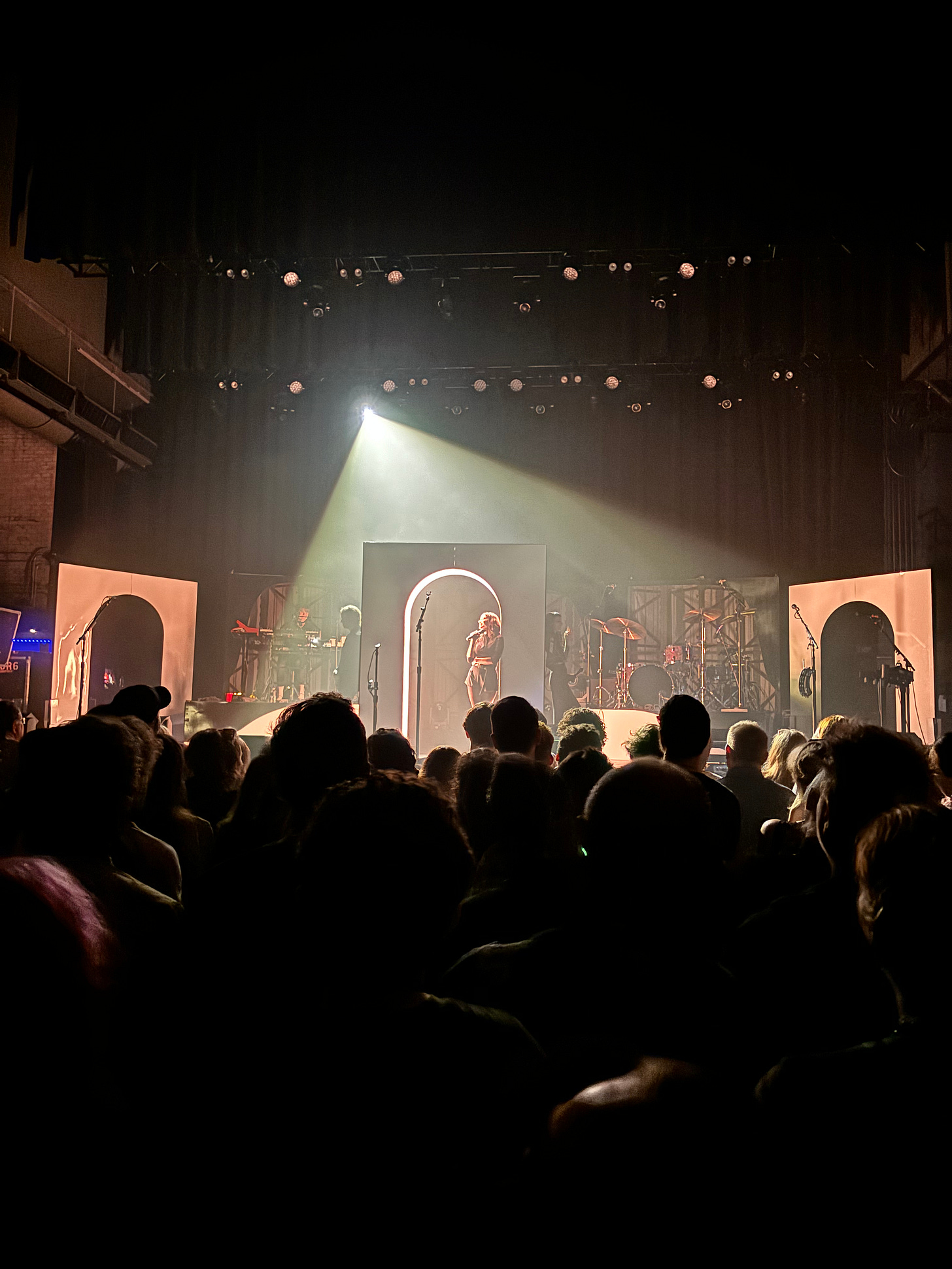I’m An Indian, Too.
A reminder of how just being an Indigenous person enjoying their life can result in the need to suit up in the middle of a concert to Tweet, post, and educate. We who do so need to be paid more.
On Friday, Sept. 20, I went to a show by St. Vincent at the Palace Theater in St. Paul, Minn. While the set was great, the performance was delightful, and the guitar work was amazing, Anne Clark, used the word “powwow” to describe a gathering of her band. Not once, but twice. What I tell people, especially other Queer people, is that anti-Indigenous language is similar to slurs like f*gg*t (which, I’ve also been called many times in my life) in that we can just be out living our best lives and the moment we hear that one word, our day can go to shit.
But we put on our big kid underwear, and we work through it. Welcome to my process.
You know, it's not like "representation matters" is the only strategy for inclusion. In fact, it's probably the lowest effort and most superficial; but it's also the most visible. What I tell clients in my communications work is that most people we talk to only have capacity to remember the dumbest things about us, so you don't always have to bring a 12-point plan to 30 second conversation.
But lord god almighty, I am still just thinking about St. Vincent saying "powwow" in her musical breakdown last week. Maybe if she had watched something filmed this century with an actual Indigenous person, she might have known better.
When I get into these spirals, I dive in full bore to get my big feelings out of the way. When I was younger, I used to feel like I wanted the earth to swallow me up whenever someone made a tomahawk chop or whooping noises. Then, I just got angry about it and started yelling at people. These days, I really get to decide how I want to respond. Sometimes, I actually get to be angry. But most of the time, when someone says something anti-Indigenous, I have to switch my thinking track over to my training in communications, journalism, and storytelling and find a way into their heads.
Part of my process is that I listen to "I'm An Indian Too," any version of it. Ethel Merman, Betty Hutton, Judy Garland, and if I'm feeling especially spicy, I listen to the disco version they used in the 1491s video a decade ago.
"Annie Get Your Gun" is a fun little story that spun the reality of the confluence of misogyny, racism, and empire building. It’s based on the life of Annie Oakley, the sharpshooter from the last days of the “old west.” Any cursory reading of history will tell you that Sitting Bull “adopted” Annie Oakley because he reportedly admired her skills. We can slice modern interpretations about what “admired” means, most might choose to think of it as a lascivious act of observation under the male gaze.
What I think of is how both were fighting for their own survivals under the extreme white patriarchy of the old west. Maybe in some moment of affinity, Sitting Bull understood that.
Then I watch the video clips of “I’m An Indian Too” from the 1950 movie, both the Garland and Hutton versions. They’re a royal trip. During the dance sequences, I think that I really wish I grew up knowing how to do group choreography at the powwow. Instead, all we did was learn how to preserve our culture and honor our ancestors. The costuming is hilarious, too; what bird do you get a pink feather from on the prairie, exactly? Then, I imagine myself on the set of that movie knowing what we know now. And all I can think is, ‘anti-Indigenous sentiments and erasure are just like an asteroid, you see them coming, but there’s really nothing you can do to move it.’
But the best defense we have from the white gaze is our humor and our wit. Most of Indian humor really is rooted in making fun of these weirdos with their zombie god, worship of the gun, and freedoms unless you’re Black or Brown.
“Reservation Dogs” not winning one damn Emmy was not disappointing. In fact, it tracks. All Sterlin Harjo and the cast of that show did was bear their soul to make Indigenous people three dimensional and succeeded well into the fourth dimension. But not one award. The consolation is that “True Detective: Night Country” did win one Emmy … for Jodie Foster, not Kali Reis. (The less said about the Seaconke Wampanoag, the better.) Annie got her gun.
The Bible that my mother loved so much and that the Jesuits forced on us does have some wisdom in it, even if its believers don’t ever listen to it. In 1 Corinthians, St. Paul and/or Sosthenes wrote, “When I was a child, I used to speak like a child, think like a child, reason like a child; when I became a man, I did away with childish things.”
I think about this whenever I find myself expecting people to be racially just, or at the very least, not actively racist. But that expectation is to deny the reality that our entire Indigenous lives and ways of being are still so novel is to be naïve. Doing away with childish things doesn’t mean I have to fight every day of my life, it just means that I get to dig in and do things I’d rather not do, like summon patience to educate and inform folks as to why anti-Indigenous behavior and Indigenous erasure has lasting consequences.
Annie Clark, you are not an Indian, too.





